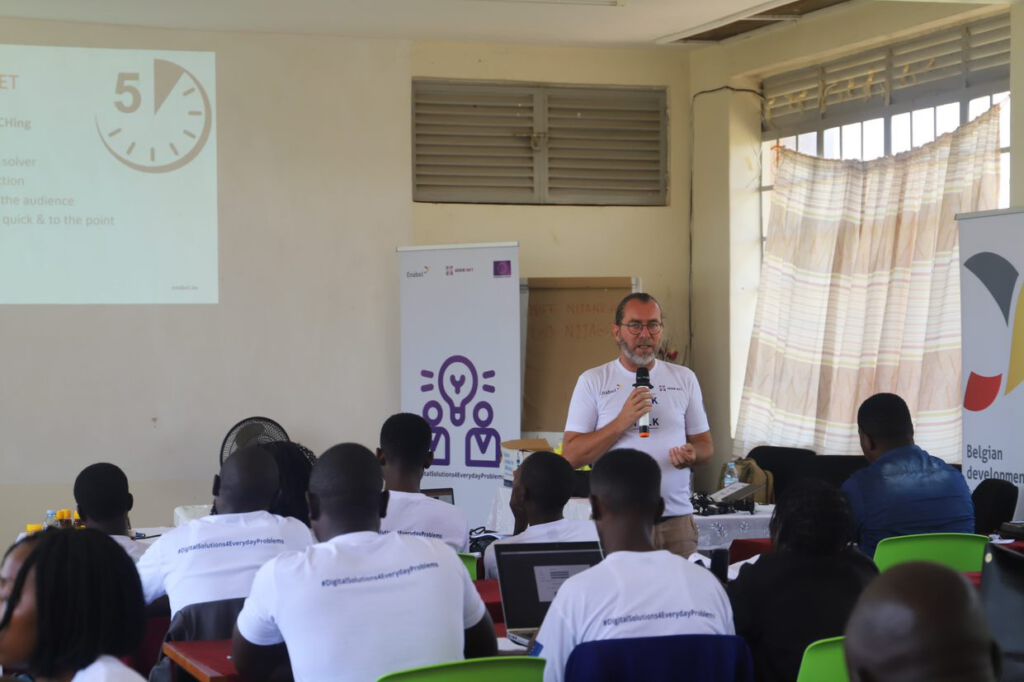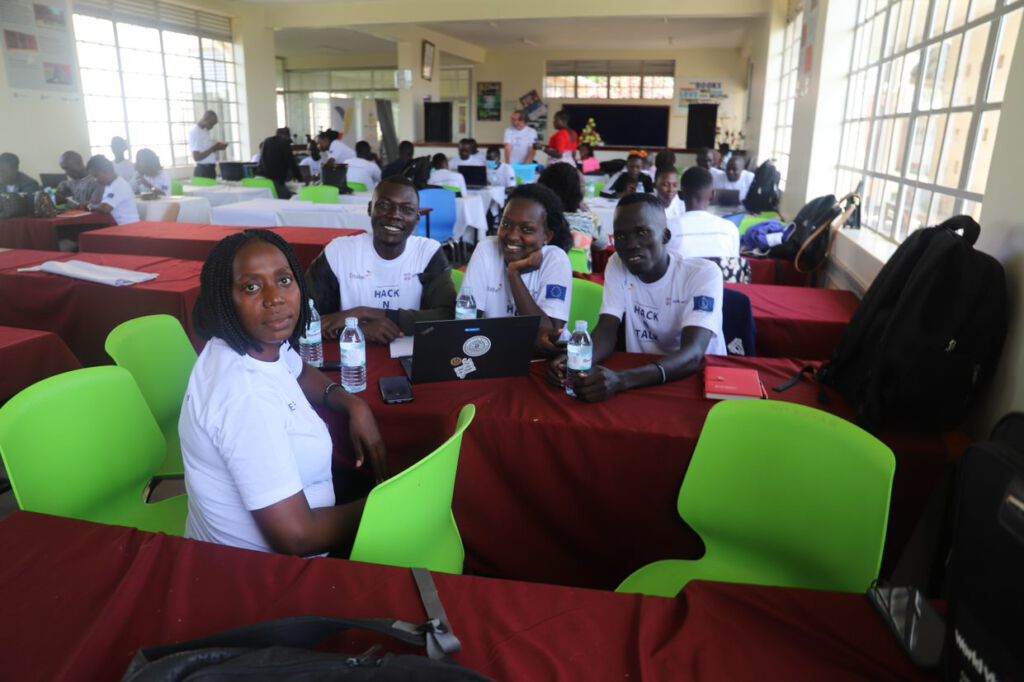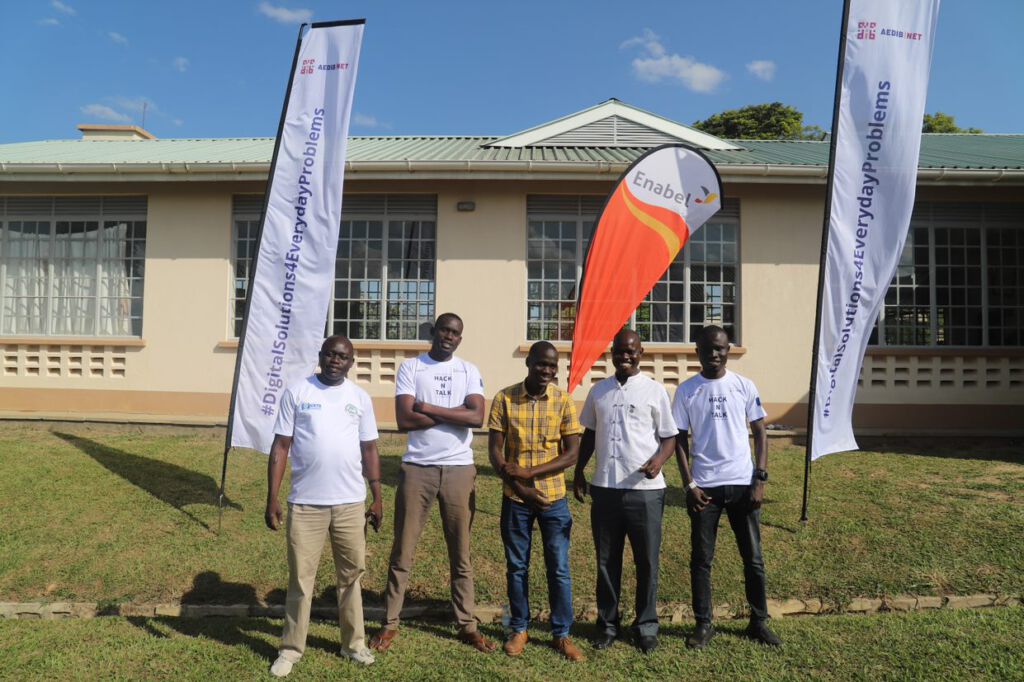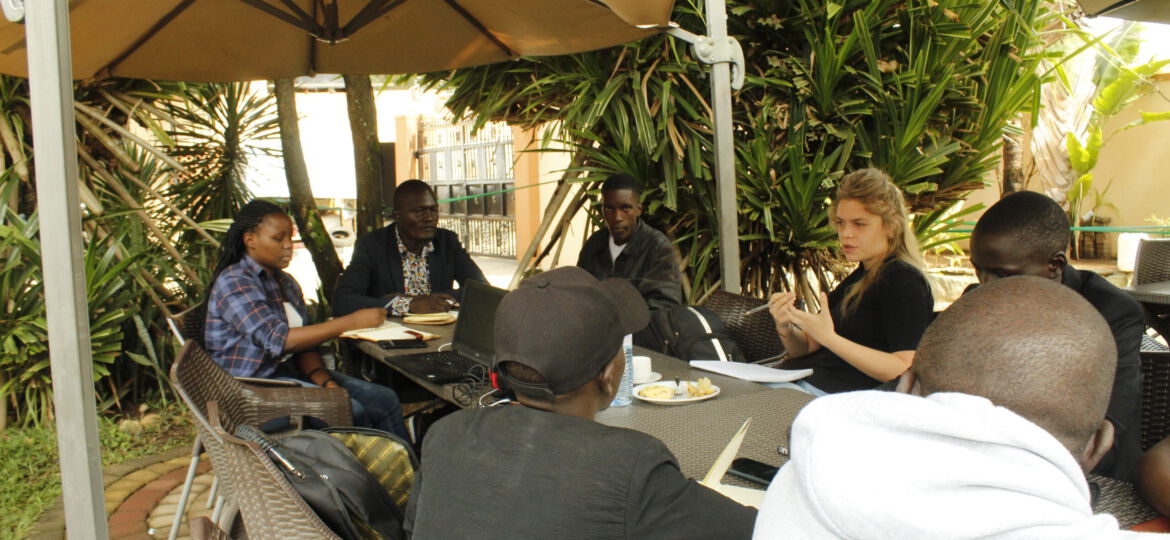Bridging the digital gap between refugee settlements and Arua city
According to the world bank (2021), too many Africans cannot access the technology they need. “Too many Africans cannot access the technology they need for school, work, health, or financial services. The pandemic has underscored the vulnerability of the digitally excluded who have a more challenging time accessing vital information, including health education and e-commerce. “the world bank study reads. This is the truth of the over 80 women and youth that were selected to attend a human-centred hackathon in Arua. The hackathon was aimed at helping them to come up with digital solutions for the digital challenges that affect them in the areas of trade, agriculture, clean tech and smart cities.
This action of the AEDIB|NET project focuses on Uganda’s West Nile region. West Nile (Arua city and surrounding areas), like any other urban place in Uganda, has access to a 3G network and electricity connectivity; however, these are neither evenly distributed nor stable all the time. The challenges of access to electricity and internet are coupled with high internet costs and the lack of connectivity gadgets like phones, tablets and computers, considering the limited income streams of the residents in the area. This has hindered digital transformation over time. It is even worse in settlements where refugees receive as low as 22000UGX monthly allowance from the World Food Programme (WFP) to cater for all their financial needs. Isn’t it amazing when such people attempt to beat the odds?
West Nile is the home of the biggest refugee settlement in Uganda (Bidi Bidi). It has a number of other settlements that host close to half a million refugees all together. Both participants from the settlement and the host were targeted; thus, the participants have diverse backgrounds, which boosts harmonious and peaceful co-existence among the different communities.
Upon completing a 48-hour hackathon on June 6th in Arua city, 14 groups that had competed to develop scalable digital solutions have since embarked on doing more research and improving their solutions. During the subsequent follow-up visits in July, the top five groups from the competition reported great progress in building their digital innovations into tangible digital products. Some have rebranded, recruited more members as well as diversified the solutions to solve more challenges that are being faced in the community. A case in point is the “Greet Tech Solutions” group in Bidibidi refugee settlement, whose first idea was to create a digital platform for marketing and selling cassava (main crop planted in the area) within the region. The group has since diversified the solution to include online training content in agriculture as well as offline training in digital skills in addition to a physical agriculture demonstration site within the settlement. This way, the solution will serve more people and will help women and youth in their digital transformation journey. Peter Natwijuka, a member of the group, was quoted saying, “The project has ignited our potential and it will help people with low or limited digital skills to transform smoothly using our computer resource centre“.

Another exciting case was among the Digital Farmers Network group, whose aim is to help farmers connect to fellow farmers and to buyers to create a sustainable relationship with them through an android app and USSD code. The digital platform also aims to prevent product theft, price manipulation and disease spread. These had embarked on extensive research with a human-centred design approach to see if their product addresses the current farmer needs and to see whether the platform would be user-friendly to the farmers. The research was expected to be completed by mid-August. Other groups visited included the Agile Lions group, who emerged as the winners of the hackathon. The group is creating an integrated e-waste management solution for a sustainable environment in households, public and private institutions in west Nile using efficient technology. The group is energised and has since embarked on fundraising to test their solution. AEDIB|NET Uganda is working with different innovation hubs owned by government to ensure that such groups do not miss out on the National ICT initiate support programme (NIISP) funding from the government.

The participants of the hackathon are enthusiastic and ready to start on their digital journey. They are now looking forward to the upcoming digital safari to Kampala in September and the phased summer school that will commence in October. Furthermore, in order to ensure sustainability of the project, intermediaries like Muni University incubation centre and other NGOs in the humanitarian response circles have been engaged and are ready to steward the innovations by the beneficiaries.
There will be exposure and knowledge sharing between West Nile region digital SMEs, start-ups, academia, governments, intermediaries (hubs, incubators) and other ecosystem players to the outside world (Kampala, Africa and Europe). In addition, a Digital and Entrepreneurship Skills (DES) Academy will be established for marginalised groups, and this will be used in the different Digital Innovation Hubs (DIHs) to ensure sustainability. The project has so far started on content development for the DES academy.

Written by: Bwengye Anthony – D4D Officer (Enabel in Uganda)
